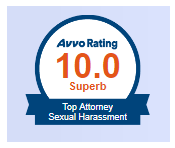CONSERVATIVE TEXAS SUPREME COURT MAKES LANDMARK RULING IN SEXUAL ASSAULT CASE IN FRISCO, TEXAS CASEB.C. vs STEAK AND SHAKE
This is a huge victory for women who are assaulted or sexually assaulted by an employer! Under the previous law (Waffle House case) women who were victims of sexual assaults or physical assaults at work were forced to pursue their claims through EEOC administrative channels and had to get permission from the Texas Workforce Commission or EEOC to sue their employers (“Right To Sue” letter). Not anymore. This is an amazing victory for men and women in the workplace who are victims of sexual assaults by their supervisors.
The background to his win in B.C. v. Steak N Shake is as follows, according to the high court’s decision:
B.C., formerly an associate at the Frisco, Texas, Steak ‘n Shake restaurant, alleged she was sexually assaulted by her supervisor on company property in 2011.
B.C. alleged her supervisor pushed her against a sink, grabbed her by the back of the head and pulled her toward him and tried to kiss her. She repeatedly told him to “no” and tried to push him away but was unable to escape. During a struggle, the supervisor unbuckled his pants, exposing his genitals to B.C. and later lost his balance allowing her to escape.
Later that same day, B.C. and her mother reported the incident to Steak’n Shake and the police. After completing an internal investigation, Steak ‘n Shake was unable to confirm B.C.’s allegations and as a result, B.C.’s supervisor was not terminated, nor was he transferred to another location. The company offered for B.C. to return to work at any other Steak N Shake location, but she terminated her employment instead.
B.C. later sued Steak’n Shake and her supervisor asserting assault, sexual assault, battery and negligence among other claims. Steak’n Shake moved to dismiss B.C.’s claims by arguing that the Texas Commission on Human Rights Act (TCHRA), which governs sexual harassment claims controlled B.C.’s common law assault claims. Under that law’s statutory framework, a plaintiff must first receive permission from the state before filing an employment discrimination lawsuit.
The TEXAS COMMISSION ON HUMAN RIGHTS was established by the state legislature when the Texas Commission on Human Rights Act passed on June 26, 1983, authorizing the agency to enforce the law and handle complaints filed under the commission or under United States Equal Employment Opportunity Commission (EEOC) when an employee alleges sexual discrimination by an employer.
The trial court granted Steak ‘n Shake’s motion to dismiss, but did not explain its ruling. B.C. nonsuited her claims against the supervisor and only appealed the trial court’s ruling on her assault claim against Steak ‘n Shake.
Dallas’ Fifth Court of Appeals later upheld the trial court’s ruling on the grounds that the TCHRA preempted B.C.’s assault claim. The Fifth Court held that under a 2010 Texas Supreme Court decision in Waffle House v. Williams that the TCHRA is the exclusive remedy for “workplace sexual harassment” and that to let her pursue the assault claim would circumvent the anti-harassment regime created by the state law.
B.C. appealed the ruling to the Supreme Court arguing that the Fifth Court misapplied the Waffle House ruling to her case. But Steak N Shake argued that high court should apply their holding from Waffle House to B.C.’s assault claim because it could give rise to sexual harassment claim which is subject to the TCHRA’s authority.
In a unanimous Feb. 24 decision, the Supreme Court held that B.C.’s claims were not preempted by the TCHRA and to rule otherwise would “muddle and obscure” the purpose of TCHRA which is designed to protect Texans who suffer from workplace harassment.
There were significant differences between the Waffle House case, which involved repeated sexual harassment claims, and B.C.’s case which involved “a single violent assault,” wrote Justice Paul Green in a decision that reverses and remands the case back to the Fifth Court for rulings on other issues.
“Moreover, were we to apply Waffle House here, we would effectively rule that any action by an employer, no matter how egregious or severe, is subject to the TCHRA’s administrative scheme so long as the conduct can be characterized as sexual harassment,” Green wrote. “Neither the TCHRA’s text nor its purpose, nor our prior holdings interpreting the statute, requires such an extreme result.”









